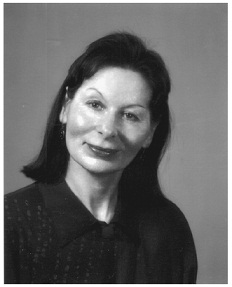Lucia's Masks (39 page)

“Do you want to reply?” he asks me.
I hold you closer. Your breath is warm on my neck. Your tiny hand grips my finger tightly even though you sleep. I stare out over the massive lake as if searching for a sign while Chandelier waits patiently. I realize that it is time to forgive myself for what I did with Guido. And he will surely want to know that the Outpacer and I have a daughter, with such a name.
“Please tell Guido Santarcangelo that I am well,” I say, “and that I have a daughter, who is healthy and who is named Speranza.”
I hear Chandelier’s foot shift in the sand as he readies himself to speed back.
For the briefest possible moment, I relive my own amazement at Guido’s revealed beauty when he pulled off the hideous rat’s mask. This is our constant work, I realize — casting out the monster in ourselves and striving to be compassionate and selfless, even though we fail again and again and again. We must cast the monster out, over and over, as ceaselessly as the waves surge in toward me where I stand.
Come, Speranza. We will go and watch Chandelier send the message coded in those dots and dashes of sound that always make you laugh in delight. We will ask him to tell us exactly when he is spelling out your name in Morse. We will think of your name speeding along the invisible radio waves of the world; then silently give thanks for everything he rescued from the ruins of his father’s house.
An earlier version of Chapter Four, “Their Feet,” appeared in
The Malahat Review
.
I would like to thank Random House, Inc. for permission to reprint lines from Wallace Stevens’s “A Rabbit as King of the Ghosts” (Copyright © 1967, 1969, 1971 by Holly Stevens).
In the writing of this book, and throughout the submission process, I was helped by the unfailing encouragement of Susan Tilley, Rhona Goodspeed, Catherine Joyce, Tom and Marilyn Henighan, Jacqueline MacIntyre, and Robert Woodbridge.
I am grateful to Sam Hiyate and Ali McDonald of The Rights Factory for their expert guidance on shaping the novel’s story in its early days.
I would like to express my thanks as well, to Séan Virgo for his empathetic email companionship in the book’s final stages, and the happy discovery of our shared admiration for Russell Hoban’s
Riddley Walker
.
Books I found particularly helpful were Sara Wheeler’s
Terra Incognita: Travels in Antarctica
; Francis Spufford’s
I May Be Some Time: Ice and the English Imagination
; and Andrew Motion’s biography of John Keats. An article by John Windsor in
The Independent on Sunday
of May 12, 1996 drew my attention to Thanos Vovolis’s reproductions of the masks used in ancient Greek drama, and his discovery of their “sound-box” potential.
I am deeply indebted to the poet Robert Duncan, whose “Passages 14 — Chords” in
Bending the Bow
introduced me to the myth of the World Egg.

Wendy MacIntyre lives in Ottawa where she works as a freelance writer and editor. She has published scholarly essays and short fiction in journals in Canada, the United States, and Britain, including in the
University of Windsor Review
and the
Malahat Review
. Her novels are
Mairi
(Oolichan Books),
The Applecross Spell
(XYZ Publishing), and
Apart
(Groundwood Books), a young adult novel which was named one of the ten best picks for young adult fiction for 2007 by the Ontario Library Association .
